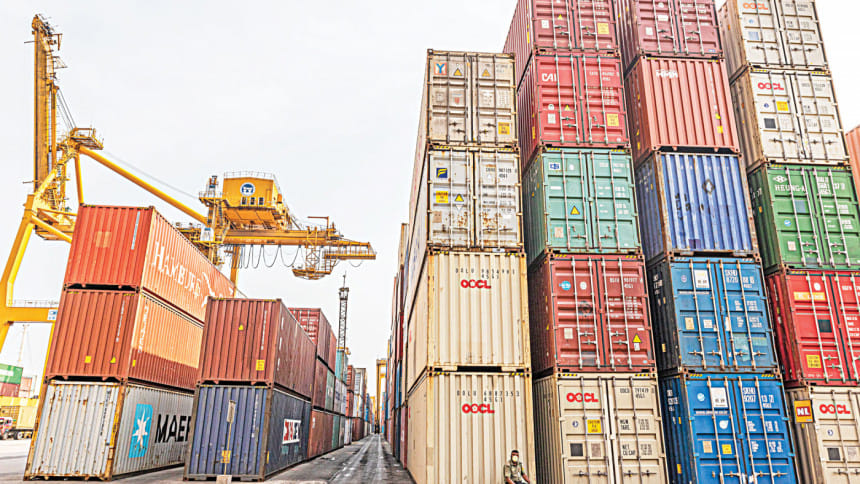Now jail term for trade-based money launderers

Businesspeople will be sentenced to seven years in prison if they make the wrong declaration on exports, imports and investment abroad as the government has moved to rein in trade-based money-laundering, which costs Bangladesh billions of dollars every year.
The finance ministry issued an order on March 10 to this effect based on the Foreign Exchange Regulation Act -1947.
The central bank yesterday asked banks to follow the instruction to tackle trade-based money laundering.
The government amended the Act in 2015, keeping a provision to punish money launderers.
According to the Act, the government would have to issue a notification to implement the measure. As part of the move, the ministry has now issued the circular.
The provision against the money launderers will be in place until December 2026.
The government is now drawing up a new law titled "Foreign Exchange Management Act." The latest provision will be included in the new act.
"We have been requested the government for long to implement the provision of the law to refrain borrowers from trade-based money-laundering," said Mustafizur Rahman, a distinguished fellow of the Centre for Policy Dialogue.
Although the government has spent six years in issuing the notification after enacting the law, the initiative is time-befitting, he said.
According to the latest Global Financial Integrity (GFI) report, 80 per cent of the total money laundered from Bangladesh was done through over- and under-invoicing.
Bangladesh lost a staggering $7.53 billion on average between 2008 and 2017 to trade mis-invoicing, said the GFI report.
In the case of over-invoicing, importers show an inflated price concealing the genuine value of the imported goods and services in the commercial invoice of the letters of credit (LCs). They do not bring back the money to the country and invest abroad in most cases.
Exporters state a lower price than the actual one at the commercial invoice of LCs during under-invoicing. They commit misdeeds to launder the money to foreign countries as well.
Money-laundering is facilitated by collusion between importers and exporters, and bank officials are sometimes forced to get involved in illegal transactions, according to a survey carried out by the Bangladesh Institute of Bank Management in 2018.
Misdeclaration of pricing of the imported and exported products is a grave concern for the country, the BIBM said.
The institute carried out another study on the issue in 2019 titled "Addressing Trade-based Money Laundering in Bangladesh: An Assessment."
It said: "Banks should develop data banks on their own to prevent billions of dollars from being siphoned out of Bangladesh through trade-based money laundering."
At the same time, banks should have self-initiatives to make data available to other private banks.
The Finance Act 2020-2021 imposed a penalty against launderers, which is at least twice but not exceeding four times the tax evaded by giving misdeclaration on exports, imports and investments in other countries.

 For all latest news, follow The Daily Star's Google News channel.
For all latest news, follow The Daily Star's Google News channel. 



Comments